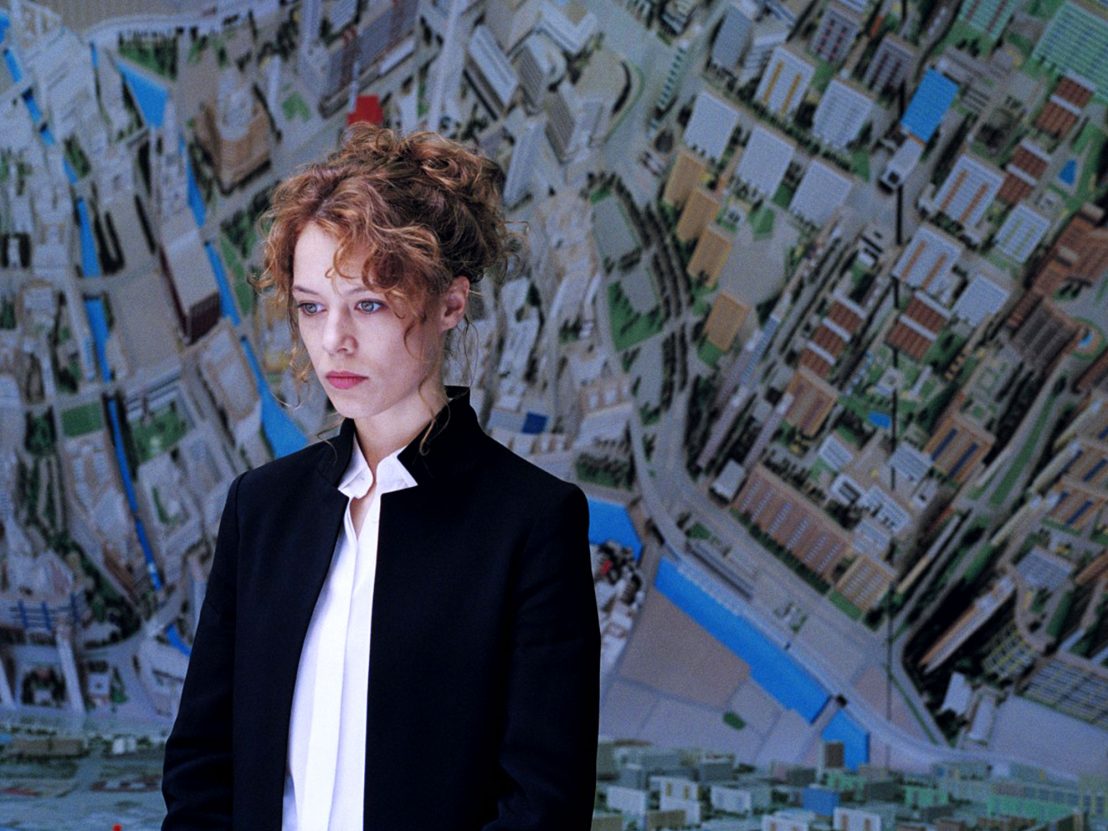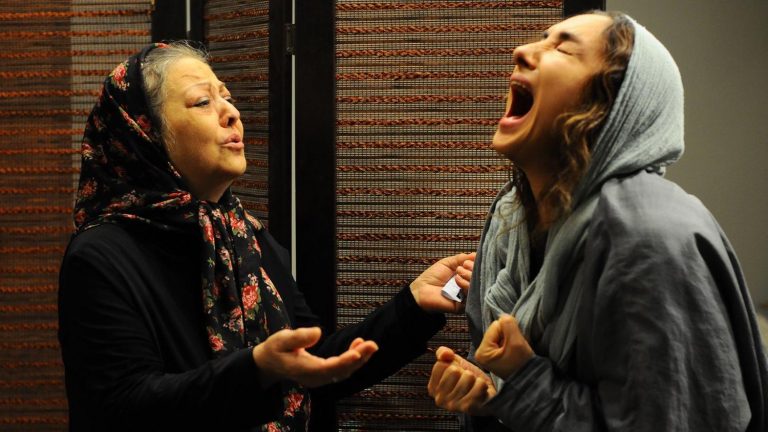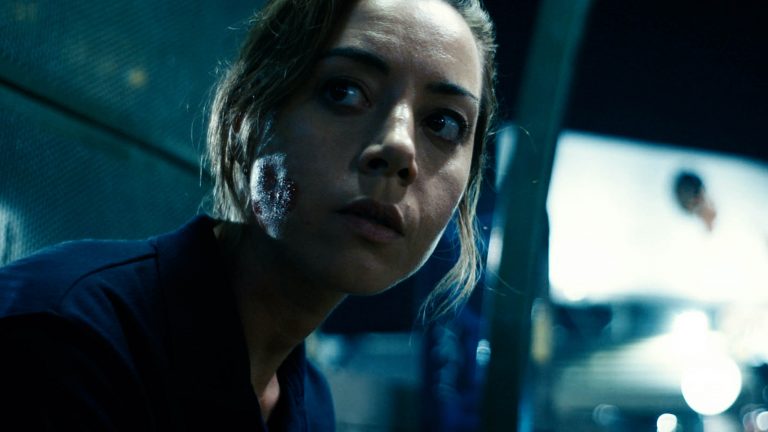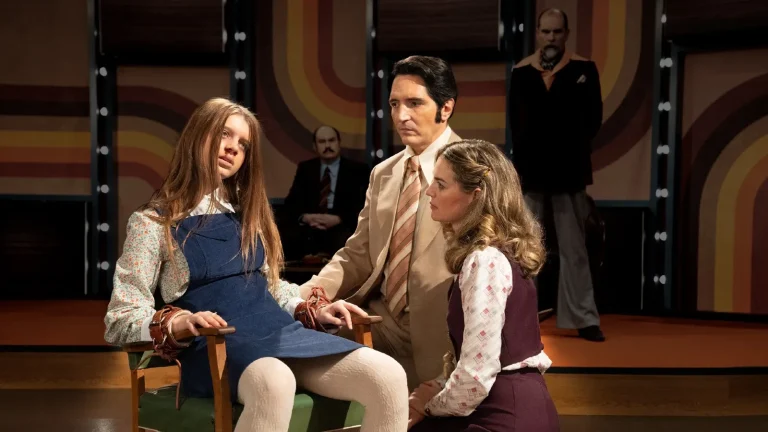If anybody could have saved Christian Petzold’s ‘Undine,’ it would have been Paula Beer playing Undine who has been rightfully recognized since its premiere. Hans Fromm, the cinematographer, does not move from her face in the opening sequence. Petzold, who directed and wrote this film, lets the man Johannes (Javon Matschenz) start with something interesting. “You must have suspected something. ‘We have to meet.’ I always say, ‘We have to see each other,’ but this time…”
Johannes dumps Undine. Neither Petzold nor Fromm leaves her alone for some time off. Beer is the focus as she walks to work immediately. She is a tour guide and carries on as if nothing has happened. The façade of normalcy has its comforts. As she hurries through the city and its streets later, she hears music and locates the place quite nearby. She then hears water running in the sink. She finds an aquarium with a model of an underwater diver in it among the fish. That is before she hears a voice call her name pretty assertively. A man, Christoph (Franz Rogowski), who is an underwater diver, enters the place and appreciates Undine’s talk.
Related to Undine – ‘Tamasha’ and the Problem of Living your Dreams
He stumbles upon something which in turn moves the cupboard full of wine glasses and other glasses. And that sends the aquarium to the floor. Undine and Christoph have water splashed all over them. The fish lie rather peacefully on the ground. Christoph wakes up in time to remove a glass shred from Undine’s bleeding body and white shirt. The next morning or so he dives into a waterbody to find a catfish. At night, he begins a romance with Undine. He takes her diving too, which does not go as successfully as planned. And the line we get from Christoph in translation after attempts at helping her breathe unlike Johannes’s. “I can revive you at home.”
So far, so good! It is probably the right time to tell you about the myth of Undine or Ondine. Encyclopaedia Britannica describes her as “a water nymph who becomes human when she falls in love with a man but is doomed to die if he is unfaithful to her.” “Unda,” in Latin, means “wave” or “water.” In the next hour of Petzold’s ‘Undine,’ the story is doomed in other ways: Petzold is missing a story! He has spent all this time and energy creating an exposition worth investing in that he cannot find a turning point or anything that follows to keep you interested anymore.
That does not mean he does not try. For a few minutes, he focuses on how healthy the relationship is between Christoph and Undine. They go to bed together, see each other off, plant pecks on each other’s cheeks ever so often. He, however, assumed the myth would bring a wealth of plot and themes, symbol and significance to his story. However, as he starts making a switch he fails to do any of that. Instead, it sits awkwardly, being based on the said Ondine reversing roles and putting the men Johannes and Christoph in focus for a little while. The male actors play their parts well enough. If you have seen Petzold’s previous film, ‘Transit’ (2018), you know what a fine actor Rogowski is.
Also, Read – Koko-di Koko-da [2019]: ‘Fantasia’ Review – An Allegory for the Dreading traumas of Grief
At 90 minutes, Bettina Böhler edited ‘Undine’ but I am not sure what she was supposed to do with it. She had done a fine job with his ‘Phoenix’ (2014) and ‘Barbara’ (2012). The production design by Merlin Ortner and set decoration by Tom Hecker are intricate and a visual treat throughout. Look out for the magical aquarium-crashing sequence. Fromm too tracks Beer carefully. Be it her walking, talking, sitting, or swimming. It was clear he would do that from the opening shot where he got her reactions – shock, surprise, sadness, and anger – with immense help from her performance.
Petzold – who is known for hard-hitting dramas which (to mention works from the 2010s) include ‘Transit’ (also starring Beer), ‘Phoenix’ and ‘Barbara’ (starring the invaluable Nina Hoss) – misses his mark with ‘Undine.’ Originating in Austria and Germany in the 20th century, the Gestalt school of thought famously said, “The whole of anything is greater than its parts.” The problem with ‘Undine’ is that its parts are Beer and the first third, which are insufficient to make a whole.


![This Is Not a Burial, It’s a Resurrection [2020]: ‘Sundance’ Review – A haunting parable about loss of individual and collective identity](https://79468c92.delivery.rocketcdn.me/wp-content/uploads/2020/01/This-Is-Not-a-Burial-Its-a-Resurrection3-highonfilms-768x432.jpg)

![Knife In The Clear Water [2017]: BENGALURU INTERNATIONAL FILM FESTIVAL (BIFFES)](https://79468c92.delivery.rocketcdn.me/wp-content/uploads/2017/02/KnifeIntheClearWater-768x384.jpg)
![What Will People Say [2017]: ‘TIFF’ Review](https://79468c92.delivery.rocketcdn.me/wp-content/uploads/2017/09/TIFF_HIGH_ON_FILMS_What_Will_People_Say_01-768x384.jpg)

